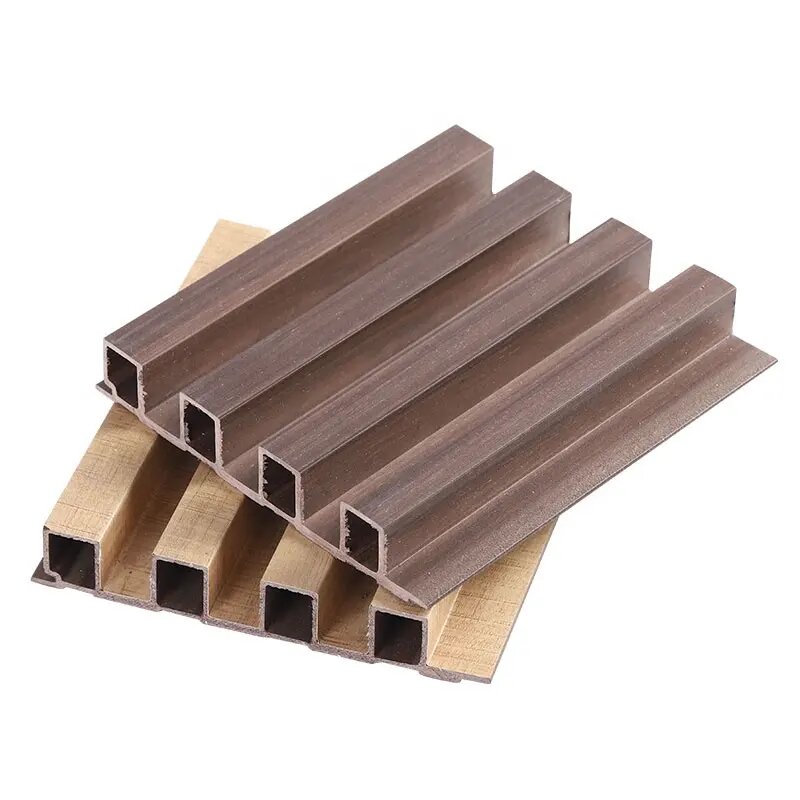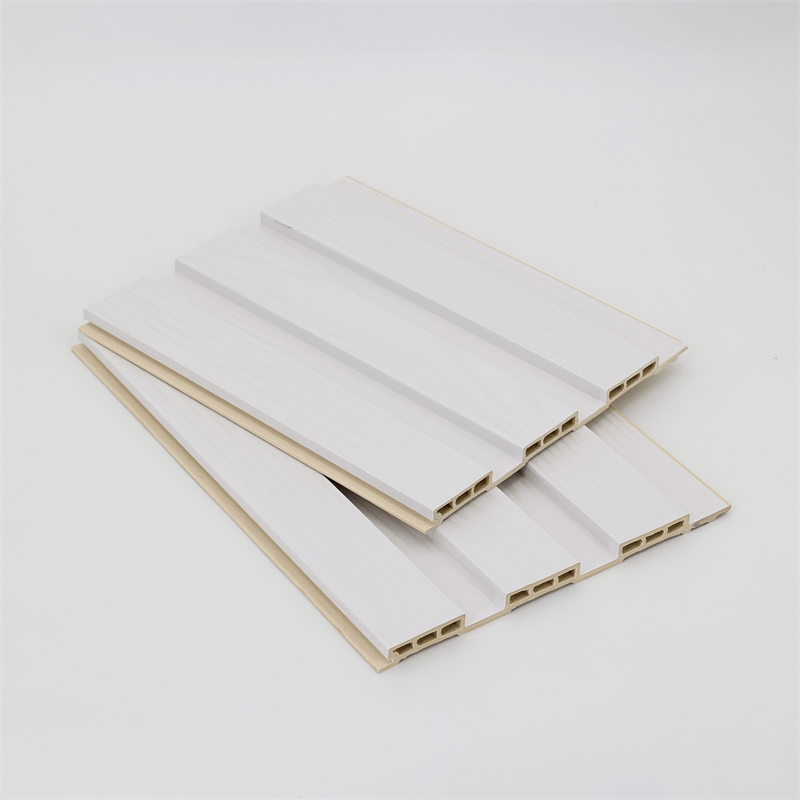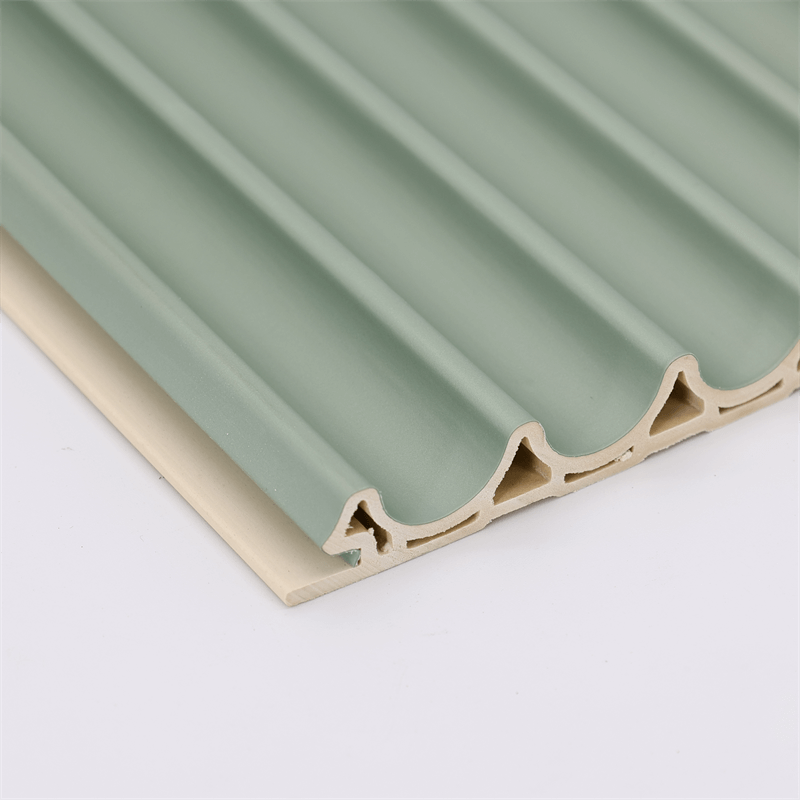In the pursuit of creating a more sustainable built environment, the construction industry is continuously exploring innovative materials and practices.
Wood-Plastic Composite (WPC) wall panels have emerged as a valuable solution in enhancing sustainability in construction projects.
This essay explores the various ways in which WPC wall panels contribute to sustainable construction, focusing on their eco-friendly composition, energy efficiency, waste reduction, and long-term environmental impact.

I. Eco-Friendly Composition: Utilizing Recycled Materials
One of the key aspects of sustainability in construction is the utilization of recycled materials.
WPC wall panels are composed of a combination of recycled wood fibers and recycled plastic materials, creating a composite that reduces the demand for virgin resources.
By utilizing these recycled materials, WPC wall panels play a vital role in reducing deforestation and the depletion of natural resources.
The incorporation of recycled wood fibers not only reduces waste but also provides a second life for wood that might otherwise be discarded.
Additionally, by using recycled plastic materials, WPC wall panels divert plastic waste from landfills and help mitigate the environmental impact associated with plastic production and disposal.
II. Energy Efficiency: Enhancing Building Performance
Energy efficiency is a crucial aspect of sustainable construction, and WPC wall panels excel in this regard.
These panels offer excellent thermal insulation properties, which contribute to reducing energy consumption in buildings.
The insulation provided by WPC wall panels helps maintain a stable indoor temperature, reducing the need for excessive heating or cooling and minimizing energy waste.
Moreover, the thermal performance of WPC wall panels contributes to increased occupant comfort by creating a more thermally efficient living or working environment.
By reducing the reliance on artificial heating and cooling systems, buildings incorporating WPC wall panels can significantly decrease their carbon footprint and energy consumption, thus promoting sustainable practices in construction.
III. Waste Reduction: Minimizing Environmental Impact
WPC wall panels contribute to waste reduction throughout the construction process.
Firstly, the use of recycled materials in the manufacturing of these panels decreases the amount of waste generated from traditional sources such as timber and plastic production.
By diverting these materials from landfills, WPC wall panels actively contribute to a circular economy and reduce the strain on natural resources.
Additionally, the modular nature of WPC wall panels allows for precise sizing and minimal on-site cutting, resulting in reduced construction waste.
The panels can be manufactured to fit specific project requirements, minimizing material waste during installation.
This characteristic not only enhances sustainability but also improves construction efficiency by reducing the time and labor required for cutting and fitting traditional materials.
IV. Long-Term Environmental Impact: Durability and Life Cycle Assessment
Sustainability in construction goes beyond the initial construction phase and encompasses the long-term environmental impact of a building.
WPC wall panels exhibit exceptional durability and longevity, contributing to the extended lifespan of a structure.
Unlike traditional materials such as wood or plaster, WPC panels are resistant to rot, insect infestation, and deterioration, resulting in reduced maintenance needs and the potential for fewer replacements over time.
Furthermore, the environmental impact of WPC wall panels can be assessed through life cycle analysis.
These panels have a lower environmental footprint compared to traditional materials, considering factors such as energy consumption, greenhouse gas emissions, and waste generation throughout their life cycle.
Life cycle assessments demonstrate the sustainable attributes of WPC wall panels and their positive contribution to the overall environmental performance of a building.
Enhancing sustainability in construction is a crucial step towards creating a more environmentally responsible built environment.
WPC wall panels play a significant role in this endeavor by offering eco-friendly composition, energy efficiency, waste reduction, and long-term environmental impact.
As the construction industry continues to prioritize sustainability, incorporating WPC wall panels becomes an essential strategy in achieving sustainable construction practices.
The utilization of recycled materials in WPC wall panels reduces reliance on virgin resources, promotes waste reduction, and helps mitigate the environmental impact of traditional material production.
Moreover, their energy-efficient properties contribute to reduced energy consumption and enhanced building performance, improving both environmental sustainability and occupant comfort.
Furthermore, the modular design of WPC wall panels minimizes construction waste and allows for precise sizing, optimizing material usage and reducing on-site cutting.
This waste reduction not only contributes to sustainability but also enhances construction efficiency.
Lastly, the durability and long-term environmental impact of WPC wall panels ensure their longevity and positive contribution to the overall sustainability of a building.
By considering the eco-friendly composition, energy efficiency, waste reduction, and long-term environmental impact of WPC wall panels, the construction industry can embrace a more sustainable future, one building at a time.

In conclusion, WPC wall panels offer a multitude of benefits that enhance sustainability in construction projects.
Through their eco-friendly composition, energy efficiency, waste reduction, and long-term environmental impact, these panels contribute to creating a more sustainable built environment.
By utilizing recycled materials, WPC wall panels reduce the demand for virgin resources and help divert waste from landfills.
This promotes a circular economy and reduces the environmental impact associated with traditional material production.
Additionally, their energy-efficient properties enhance building performance, reduce energy consumption, and lower carbon emissions.
The modular design of WPC wall panels minimizes construction waste, optimizing material usage and improving construction efficiency.
This not only reduces environmental impact but also saves time and resources during the construction process.
Furthermore, the durability and long-term environmental impact of WPC wall panels ensure their longevity and positive contribution to sustainable construction practices.
Their resistance to rot, insect infestation, and deterioration reduces maintenance needs and the need for frequent replacements, resulting in lower resource consumption and waste generation over time.
As the construction industry continues to prioritize sustainability, incorporating WPC wall panels becomes a vital strategy in achieving environmentally responsible building practices.
By embracing the benefits of WPC wall panels, construction projects can reduce their ecological footprint, promote the efficient use of resources, and contribute to a more sustainable future.
In summary, WPC wall panels are a valuable tool for enhancing sustainability in construction.
Their eco-friendly composition, energy efficiency, waste reduction, and long-term environmental impact make them an ideal choice for environmentally conscious builders and designers.
By embracing the versatility and benefits of WPC wall panels, the construction industry can play a significant role in creating a more sustainable and resilient built environment for future generations.

